Section 7
Viral Diversity
By Boundless
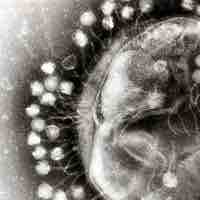
Bacteriophages are viruses that infect bacteria and are among the most common and diverse entities in the biosphere.
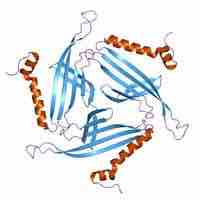
Nineteen families of bacteriophages that infect bacteria and archaea are currently recognized; of these, only two families have RNA genomes.
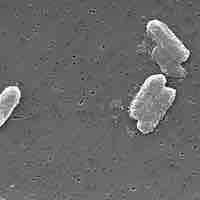
Of the viral families with DNA genomes, only two have single-stranded genomes, the Inoviridae and the Microviridae.
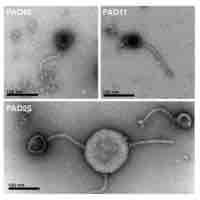
The dsDNA tailed phages, or Caudovirales, account for 95% of all known phages and possibly make up the majority of phages on the planet.
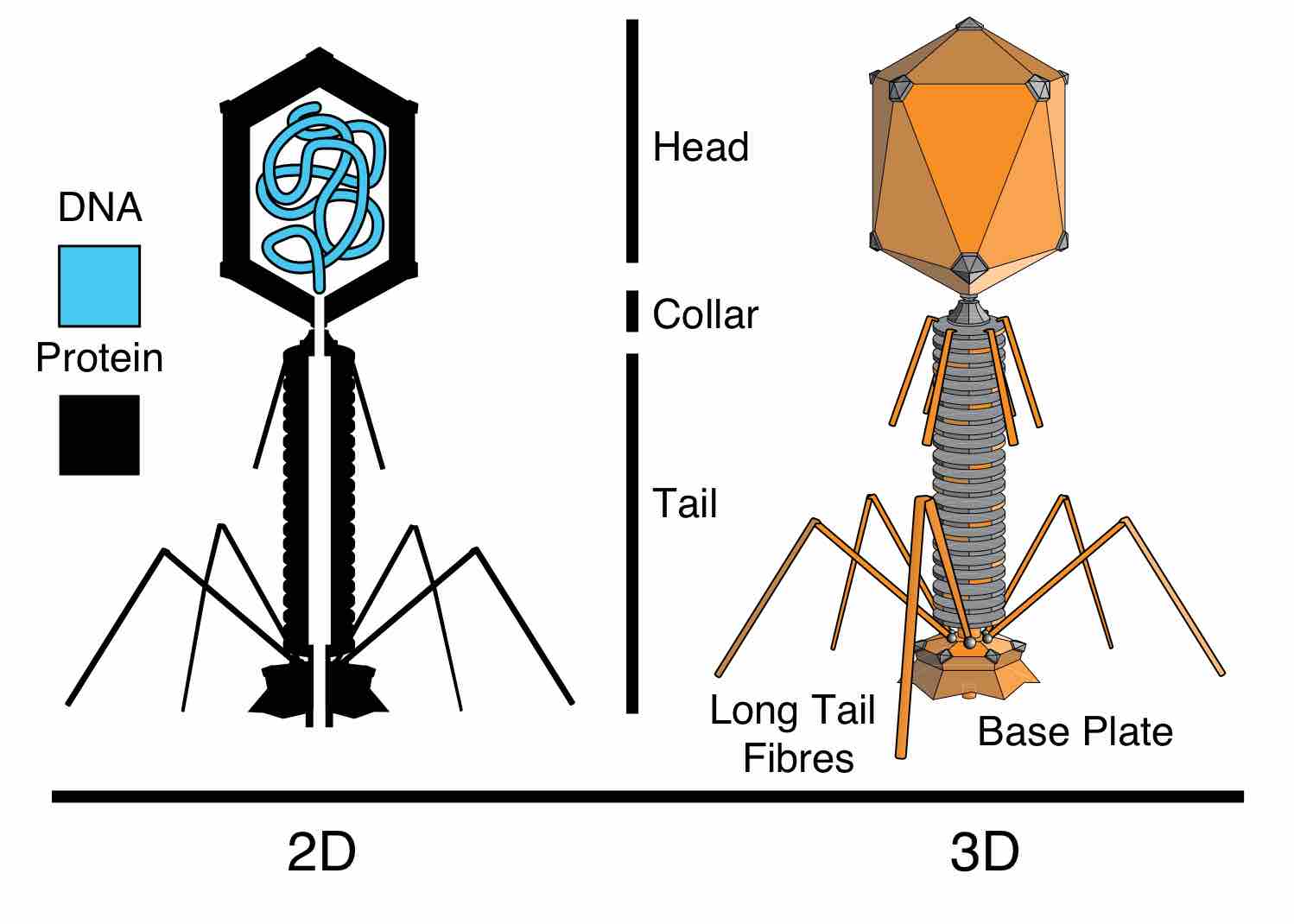
Bacteriophage Mu is a temperate bacteriophage that uses DNA-based transposition in its lysogenic cycle.
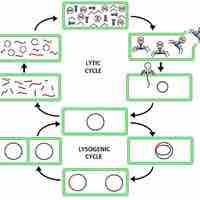
T-4 bacteriophage is a virulent bacteriophage that infects E. coli bacteria; virulent bacteriophages have a lytic life cycle.
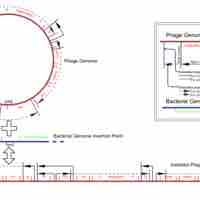
In virology, temperate refers to the ability of some bacteriophages to display a lysogenic life cycle.
Most viruses infecting Archaea are double-stranded DNA viruses that are unrelated to any other form of virus.